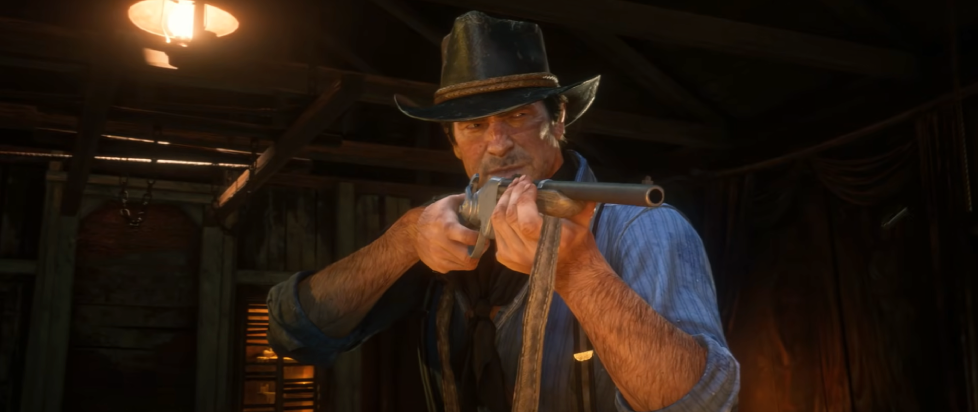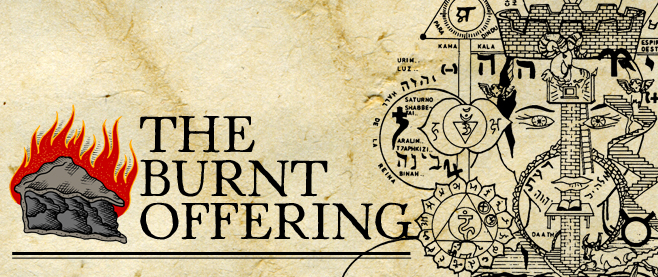
Two Deaths
So if anything can be true in a videogame, if through your own interaction and interpretation you can make a game into the story of anything you want, it’s like nothing means anything. Where I always personally struggle with my apprehension of videogames is that, by their nature, they represent the absence, even the death of, the singular text. The strongest and most well-regarded videogame stories – let’s say, for example, Silent Hill 2 – can be totally undone by our actions as players. If the strength and cohesion of James Sunderland as a character and the narrative that results from him kind of rests on him being reluctant and fearful and uncertain and overcome with neuroses and guilt, how does that stand up against an aggressive playstyle, whereby you confidently and diligently attack and kill every monster? How is John Marston, the cowboy with a heart, desperate to rescue his family in Red Dead Redemption, anything close to what the game intends him to be, and what he needs to be for the game’s narrative to cohere and function, if you embrace what the game also allows and invites you to do by shooting civilians and spending hours not doing the missions that get Jack and Abigail back, but instead finding collectibles and unlocking secret gear?
We’ve never resolved the question of ludonarrative dissonance. It’s become a cliche, an irreconcilable academic joke, a problem that’s too theoretical and high-minded and navel gazing to, seemingly, warrant much further investigation. I feel like we’ve characterized ludonarrative dissonance as this archaic, besides-the-point concept only as a way of sidestepping and avoiding negotiation with it, despite the fact it is still the fundamental problem in the proposition of games as intelligible, meaningful works. The very foundations of games as systems and objects kind of belie the possibility of impactful drama. When it’s accepted, entirely and without serious consideration, that the characters we play cannot truly die – that death is something they can instantly recover from and retcon – to what extent does that undermine the possibility of empathic human theater? The importance of anything that anyone does or that happens to them surely owes a debt of meaning to the imminence of death – if you can’t die, and your life is unlimited, and therefore permanently expendable, by its nature, what does anything you ever do really matter?
Some videogames propose a kind of semi-resolution to this problem. In Red Dead Redemption and its sequel, and also games like The Last of Us: Part 2 and Telltale’s The Walking Dead, the death of our characters is given meaning and purpose through the fact that it happens canonically – outside of general play. John Marston dies in a cutscene. Arthur Morgan dies in a cutscene. Joel dies in a cutscene. Lee Everett dies in a scene that we can still shape and influence, but that is always inevitable despite anything we might do beforehand as players. Player characters in games can still be killed, as part of the story, and you might argue this means that death can still hang over them, and the dramatic kind of fuel and context that death provides can still exist.

A character who cannot truly die, and so has infinite time, loses all dramatic potential, because, by their nature, anything that might happen to them or they might choose to do is incidental – there is always more time and another chance to do it differently. When a character can die, and their time is finite, what happens and what they choose is, again, by its nature, more impactful, because the presence of mortality implies also finality, which implies consequence, which implies drama. There can be no drama without death. Allowing us to respawn and undo our mistakes in play, but then still retaining the authority to kill our characters in cutscenes or other components of a game that are non-negotiable, is how games attempt to square this circle, to a) be playable while b) carrying some kind of sanction for incorrect play, which motivates us to play and engage “better” which c) doesn’t irreparably affect the canonical text by actually killing the characters every time the player gets them killed because that is d) reserved for sparing, dramatically significant moments that the authors retain complete control over. There become, in games, two different deaths: deaths during play, which don’t matter at all, and deaths during script, which we are told are real and final and do matter.
But I don’t know. I don’t know if that’s an elegant solution or satisfactory to me personally or what, because it seems like videogames stepping over themselves to try and explain or formalize something that is perhaps unexplainable, or unformalizable. Or maybe games aren’t doing that and it’s just me instead – maybe people generally aren’t that bothered about this two deaths thing, and accept it as part of artistic license or acceptable function of the medium or whatever.
Maybe the issue here isn’t really how games deal with death but more like how the way games deal with death is kind of emblematic for something more wrong with them, something that maybe would bother people and is potentially resolvable if things would only change, whereby it often feels like what you’re told matters in games narratively actually doesn’t mechanically. Any game where death is a possibility usually involves fighting and killing, and that fighting and killing is usually characterized as in some way dramatically relevant and urgent and essential. But the relevance and urgency and necessity of that fighting and killing, at the narrative level at least, owes a lot to the specter of possible death.
Joel creeping through a pack of Clickers, silently knifing each one as he goes, is tense partly because of the underlying dramatic implication: if this goes wrong and he dies, Ellie will be alone, and probably die also, and then the whole world might be doomed. But given the fact he actually can’t die, at that point, in that story, I wonder how it affects our perception shift away from the problem of death and think about a narrative or dramatic inconsistency that exists within a single playthrough of a game, without any respawns or restarts or anything.
Like how you unlock that plane after that mission in Far Cry 5, and the guy on your radio says be careful with it, it’s the only one of its kind, but if you crash and blow it up, another respawns for you back at the airfield. Or maybe that bit in Grand Theft Auto: San Andreas after the race against Catalina and Claude, where CJ is really jazzed because he’s won their car off them, despite the fact he can steal any vehicle in the world free of charge with basically total impunity. Or those games that show the bullet holes on you, like Xbox 360 version of Hitman: Blood Money, or Kane and Lynch, or Max Payne 3, and they show the bullet holes and they’re enormous and like right in the middle of your character’s chest or forehead, but your character is fine. Or how in cutscenes and diaries and files and stuff in Resident Evil everyone turns into a zombie if they get bitten, but if you get bitten it just chips off some health and you’re fine.

It’s impossible not to sound obsessive and pedantic, as if I maybe lack something cerebrally that lets me accept disbelief and artistic license and mechanical necessity and fair-game dramatic contrivances, but I swear I’m onto something here. It’s like games will tell you something matters – Joel must not die; Far Cry 5 guy must not crash this plane; CJ can have any car he wants; Kane and Lynch and Hitman and Max Payne are susceptible to bullet wounds, see?; the zombies turn other people into zombies when they bite them, that’s how it spreads – and then also tell you something directly contradictory and give both statements, tellings, illustrations, equal authority. Joel must not die but if he does die it doesn’t matter. Far Cry 5 guy cannot crash this plane but if he does crash the plane it will come back as if it hasn’t crash. Hitman and Kane and Lynch and Max Payne are susceptible to bullet wounds but if they have them in their chest and face they don’t notice. Zombies turn other people into zombies with bites but if they bite you you won’t turn into a zombie.
I don’t want games to really do anything about this. I don’t want a Resident Evil where you die in one bite or some shitty permadeath The Last of Us or something. I don’t see all this as a problem that needs addressing necessarily through a chance of videogaming design and contrivance basics. What I see I guess in all this are microcosmic pictures, metaphors, illustrations of how goddamn unknowable everything seems nowadays.
Stop me when this sounds familiar, but I don’t know what to think about anything, what to believe, who’s right, who isn’t, blah blah blah. It feels stupid and kind of doomed to really commit myself to facts at the moment, like eventually everything I say I like or follow or favor will be undone and proven to be lousy and just not what you thought it was. I’m a Muslim, but I look at the kind of substance and practice of my faith sometimes and think, Jesus, this is just madness. I’m left-wing, but I don’t believe in any left-wing politicians or writers. I’ve designed my life to be alone but I miss being monogamous and loved. I’ve been in long-term loving relationships and just wanted to be alone. I have a lot of what I’ve always wanted and I’m still miserable. I sometimes feel happiest when it’s like everything is falling apart and vanishing. You see what I mean?
It’s this modern spiritual crisis I think we’re all going through, where no-one really knows what or who or how the fuck they are. If I keep writing about videogames it’s because they remain this kind of gargoyle, this grotesque, in the Baroque, Neoclassical, Victorian sense of the word – like the French drolleries – of the state of the soul right now. I struggle to know what to feel about anything, not in a cop-out, nihilistic way – but more like whatever you throw yourself behind, there always feels like the possibility of it making you look stupid, like there’s no pure, intractable, totally unambiguous social or religious or emotional or spiritual truth in the world. And I think games make you struggle to know, with any real conviction, what to think or feel or even fundamentally understand about the narratives and their characters and their meanings – I think games undo and contradict their dramatic beliefs and narrative convictions with matching belief and conviction.
———
Edward Smith is a writer from the UK who co-edits Bullet Points Monthly.





